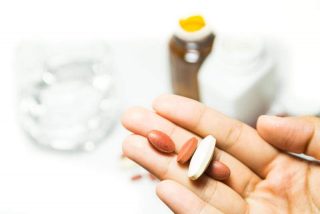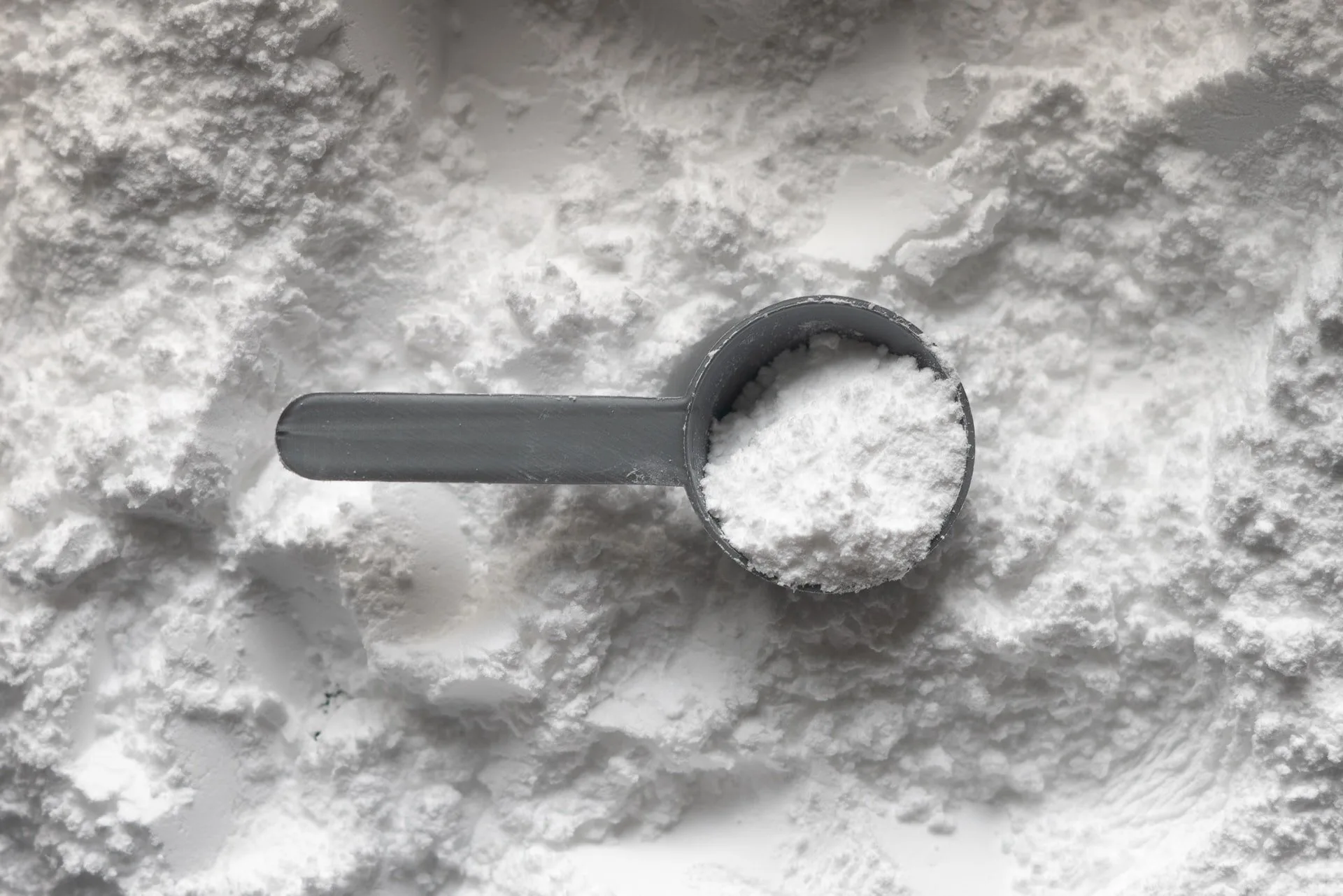In general, creatine as a supplement tends to get a bad reputation. It seems that medically, there is a lot of disagreement when it comes to taking creatine. If you’re looking for an overview of creatine and some of the good and bad aspects, you can view our recent post here. This article takes a more in-depth look at creatine. I spoke to Kelly C. Heim, Ph.D., who is a Senior Scientific Director, Pharmacology & Genomics for Pure Encapsulations and Douglas Laboratories. He answered some of the most common questions and addressed some of the concerns that often come up when it comes to taking creatine supplements.
Is creatine a type of anabolic steroid?
Creatine is not an anabolic steroid at all, Heim describes it instead as a natural compound that is made by “the liver and kidneys from two amino acids, [namely] arginine and glycine”. Heim says that Creatine is stored in muscle tissue, and it supports the regeneration of cells as well as boosting cell energy and efficiency. It is contained in fish, meat, and dairy products in small amounts. However, creatine gained from food sources such as these would not be enough to boost muscle and/or improve athletic performance.
In the case of athletes and bodybuilders, they take it as a supplement to aid in gaining muscle and enhancing both strength and performance. Most of the creatine in the body is stored in the muscles in the form of phosphocreatine. The creatine in the muscles, according to Healthline, accounts for about 95%. The remaining 5% is stored in the brain, liver, and kidneys.
Creatine and Teens
A common worry that many parents have when it comes to creatine is whether it is safe for teens and children to use as a supplement. It’s common for teens, specifically teenage boys, to use it as a supplement for athletic training. But is it actually safe?
There seems to be some disagreement in the wider scientific community as some argue that taking creatine supplements too early in life can cause adverse effects. However, Dr. Heim disagrees and explains that creatine can be a safe and beneficial supplement for teens, whether they are athletes or not. Whilst he admits that there are relatively few studies when it comes to teenagers using creatine as a supplement, he mentions a 2017 study published by the International Society of Sports Nutrition.

Photo by Alora Griffiths on Unsplash
This specific study concluded that creatine, when taken as a supplement during adolescence, can be beneficial and is not dangerous. However, this is only true when the quality of the supplement is good. It is also important that teens who do want to use creatine supplements understand the possible risks involved if they take too much. As long as you make sure that you are taking the correct amount, it seems that it can only be beneficial.
Creatine and older adults
Though it won’t stop the aging process, it does have the potential to slow the progress of muscle and mental decline. Heim mentions an analysis of “357 elderly individuals” who increased resistance training and took creatine as a supplement. It showed “greater improvements in muscle mass and strength [5]”.

Dragana Gordic/Shutterstock
Other studies also back this finding and have shown excellent results when combined with resistance training when it comes to “improving lean mass, muscle function, and performance in both physical and mental tasks [5-9]”. Ideally, creatine needs to be taken as a supplement in combination with at least 12 weeks of training.
What type of creatine is best?
Dr. Heim recommends that you make sure you are taking plain creatine monohydrate as this is what is used in most studies. When you’re shopping for a creatine supplement, read the packaging carefully and look for the compound creatine monohydrate. Heim explains that there is absolutely no need for any complex formulations, and when it comes to creatine supplements, the plainer, the better. Another vital aspect that Heim mentions is quality. Ideally, you want to choose a supplement that has been tested by a third party not connected to the brand. This means that the supplement has been checked for “3rd party testing for contaminants and banned substances”.
How much should you take?
Another important thing to know is how much you should be taking. Dr. Heim says that pure, powdered creatine is a good bet. Generally, this format of creatine should taste nothing at all meaning that it is easy to incorporate into either foods or drinks. Whilst creatine loading is another widely disagreed upon as a topic, Heim says that as long as you follow the correct protocols during loading, it should be fine. 
Loading means that you are trying to speed up the rate at which creatine is accumulated in the body. Heim says that during loading “a higher dose of 0.3 g/kg body weight per day is given for 5–7 days” this is then “followed by a daily maintenance dose of 0.03 g/kg body weight (3–5 g/day)”. He also recommends carbohydrate-rich foods during the loading phase as they can aid the body in building muscle during this phase.
It is also worth mentioning here that creatine shows itself to be as effective in women as it is in men. Many people tend to think of it as a supplement that is only for men but this, Heim says, is untrue and has no basis in fact.
Other worries associated with creatine
Does creatine damage the kidneys?
According to Heim, this is a no. Studies on humans taking creatine as a supplement have been fairly intensive and long-running (around 5 years). There are a few reports that Heim says express that creatine supplements are to be avoided if there is an underlying issue with the kidneys. However, he says, that in healthy people, there should be no risk as long as you are taking the correct amount for your body weight. He mentions that there have been many recent studies that show that taking a creatine supplement had little to no effect on “renal function as measured by serum creatinine and urea values” [2].

Nina Buday/Shutterstock
Could taking creatine supplements cause hair loss?
One of the other major worries is that creatine can cause hair loss and, in the long term, baldness. However, Heim makes sure to mention that creatine is not even similar in makeup or structure to testosterone or dihydrotestosterone (also known as DHT) which is responsible for causing baldness. Heim says that this means that creatine is unable to “activate the same receptors in the skin and scalp”.
Heim mentions that there was a small study that showed increased levels of DHT in their blood, however, this was negligible and was unable to be replicated [3]. So hair loss is really not something to worry about when using creatine as a supplement.
About Kelly Heim
 Kelly C. Heim, Ph.D.*, is the Senior Scientific Director, Pharmacology & Genomics for Pure Encapsulations and Douglas Laboratories. As the co-creator of PureGenomics® and leader of its scientific advisory board, he oversees the evidence-based development of the platform and its educational resources. As a pharmacologist specializing in natural products, Dr. Kelly Heim. Heim is a published author and illustrator of various studies, scholarly reviews, and book chapters.
Kelly C. Heim, Ph.D.*, is the Senior Scientific Director, Pharmacology & Genomics for Pure Encapsulations and Douglas Laboratories. As the co-creator of PureGenomics® and leader of its scientific advisory board, he oversees the evidence-based development of the platform and its educational resources. As a pharmacologist specializing in natural products, Dr. Kelly Heim. Heim is a published author and illustrator of various studies, scholarly reviews, and book chapters.
He offers complimentary learning resources on the basic and clinical pharmacology of natural products via his website, Integrative Pharmacology.
References
- 1.Kreider RB, Kalman DS, Antonio J, et al. J Int Soc Sports Nutr. 2017;14:18.
- 2.de Souza E Silva A, Pertille A, et al. J Ren Nutr. 2019 Nov;29:480-489.
- 3.van der Merwe J, Brooks NE, Myburgh KH. Clin J Sport Med. 2009;19(5):399-404.
- 4.Jagim AR, Stecker RA, Harty PS, et al. Front Nutr. 2018;5:115.
- 5.Devries MC, Phillips SM. Med Sci Sports Exerc. 2014;46(6):1194–203.
- 6.Stares A, Bains M. J Geriatr Phys Ther. 2020;43(2):99-112.
- 7.Gualano B, Macedo AR, Alves CR. Exp Gerontol. 2014;53:7-15.
- 8.Gualano B, Rawson ES, Candow DG, Chilibeck PD. Amino Acids. 2016;48(8):1793-805.
- 9.Candow DG, Forbes SC, Kirk B, Duque G. Nutrients. 2021;13(3):745.
- 10.https://www.healthline.com/nutrition/what-is-creatine#muscle-gain



![women [longevity live]](https://longevitylive.com/wp-content/uploads/2020/01/photo-of-women-walking-down-the-street-1116984-100x100.jpg)










